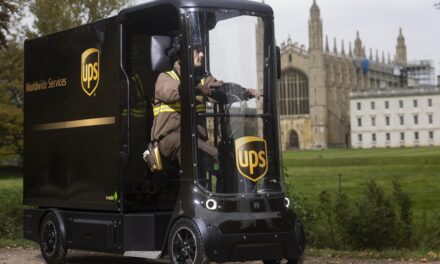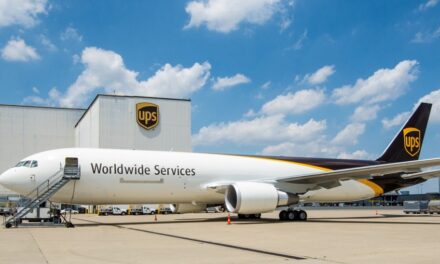
A Peak Ahead

Kiel Harkness, Marketing Director, UK, Ireland and Nordics at UPS, gives some pointers on how to prepare for the Christmas period. It is all too easy to let the peak season sneak up on you and your business. At UPS, we define “peak” as the period from mid-November through Christmas and even into January.
At key dates within this time period (Black Friday, Cyber Monday), both logistics companies and retailers will experience spikes in demand as large numbers of shoppers make purchases at the same time. This can put a strain on businesses trying to fulfil demand – on Black Friday 2015, some retailers reported seeing 900+ orders a minute, according to statistics from UK online retail association IMRG.
This sales spike can lead to challenges such as website crashes or items going out of stock rapidly. However, businesses were far better prepared for the peak season in 2015 than previous years. Building on experience from past seasons, 2015 Peak was much more successful for retailers, as they took steps to ease pressure on operations such as launching promotional campaigns well ahead of the season and extending the time period for the promotions.
This year will be UPS’s 109th festive shipping season, and we’ve seen first-hand how peak has changed and grown. During 2015 Peak, UPS successfully delivered 612m packages globally; on 21 December alone – UPS’s peak delivery day – it delivered over 36m packages, double the normal daily average. This success was in large part due to taking on additional staff – 1,300 were hired in the UK, and more than 90,000 globally – to support the increase in online shopping and package volumes over the period from November 2015 through January 2016.
The rise in online shopping has introduced new milestones, advancing the start of the traditional peak period. For example, consumer holiday Singles Day on 11 November – a popular social celebration in China – is the world’s biggest online shopping day of the year. Cyber Monday and Black Friday in November, originating from the US, and now household names in the UK, have both seen retailers recording record spikes in online sales.
With online retailing forecasted to continue growing at record levels, each peak season is expected to present new challenges. Successful preparation each year can be achieved across four key areas: planning, communication, customer convenience and returns.
- Planning: Businesses should consider their logistics setup well before the peak season. Most retailers need to be thinking about stocking the shelves in July and August to ensure goods will be available for the Christmas period. E-retailers should prepare their websites to cope with increased demand around key dates such as Black Friday. If you are participating in promotional periods, consider extending the offer period for a whole week, taking the pressure off your website and logistics setup.
- Communication and convenience are key: A logistics partner can provide additional technology and expertise from shipping solutions to tracking, proactive alerts and API’s. For example, UPS offers WorldShip software, which can be critical to getting shipments out quickly and without error through the use of printed labels. It can also provide shipment alerts and will ensure customers are kept up to date with the status of their parcel, cutting down on the number of “where is my order?” calls received during the holidays. Communicating transparently with customers on when they will receive their goods and when the last ordering dates are to make delivery by Christmas can also increase customer satisfaction.
- Avoid out-of-stock scenarios: One of the most common ways to lose an online customer is when a desired product is out-of-stock. UPS consumer research reveals that when faced with an out-of-stock item, 41% of European consumers will go to a competitor’s website or app, with 20% saying they will go to a competitor’s physical store. The UPS Pulse of the Omni-channel Retailer research shows that online businesses are responsive to out-ofstock challenges, but physical stores lag behind, with nearly half of brick-and-mortar stores suggesting customers wait for products but do not provide an alternative.
- Remember returns: Retailers that want to win and retain customers have to integrate returns into their offer. UPS’s Pulse of the Online Shopper 2015 survey found that a hassle-free returns policy is a key decision-maker for those shopping online, influencing their likelihood to complete a sale. Currently, 61% of UK retailers charge for the return process if the items are not damaged or defective, which is well above the European average of 43%. Working with a third-party logistics provider can help improve costeffectiveness and make the process as smooth as possible for all parties involved.
For businesses, Christmas comes early as the 2016 peak season presents a great opportunity. With the right strategies in place, businesses can maintain their profit margins during the season without compromising the customer experience, building a strong base for years to come.













